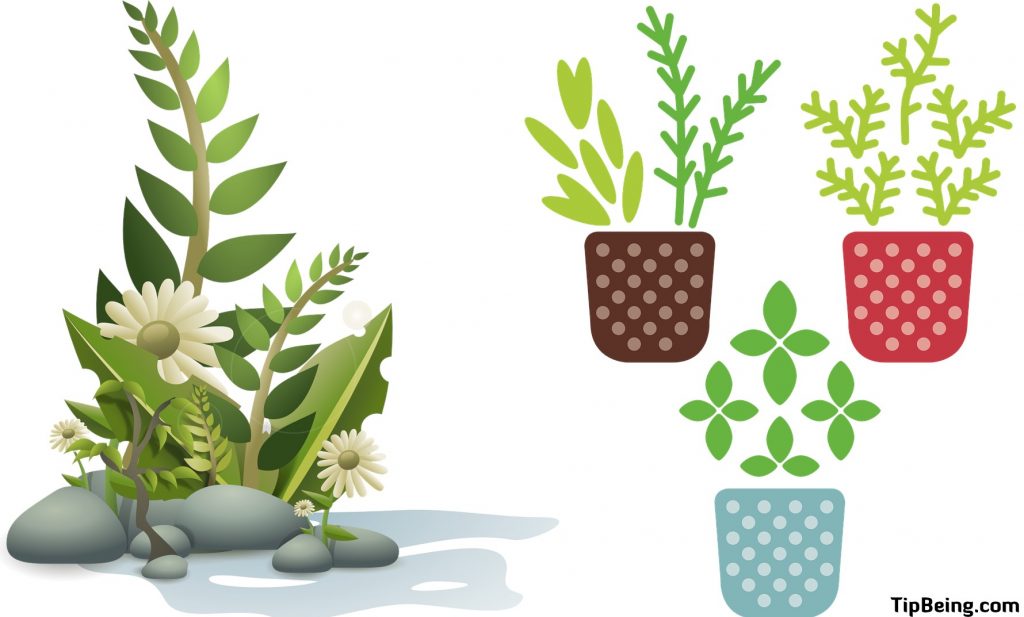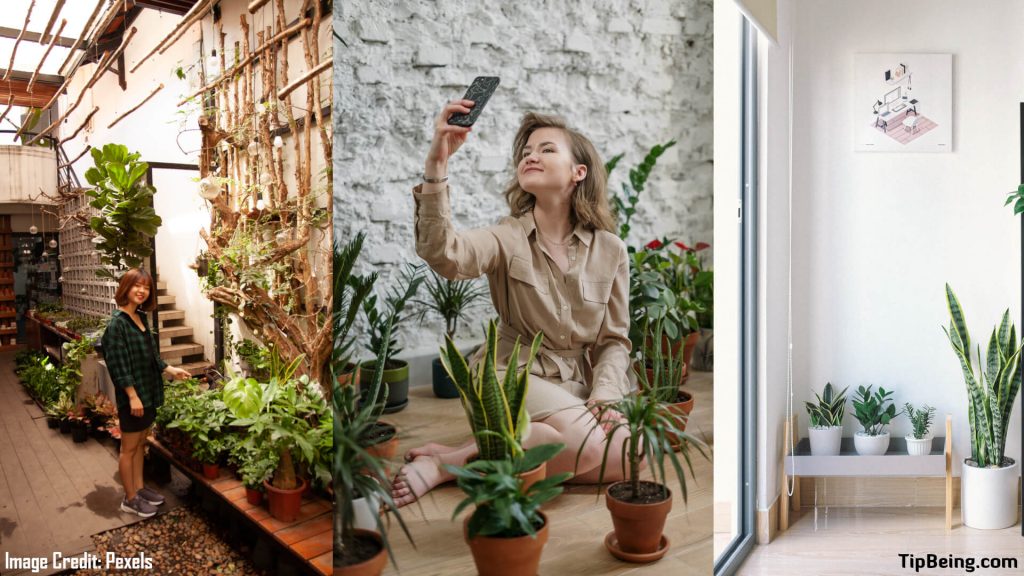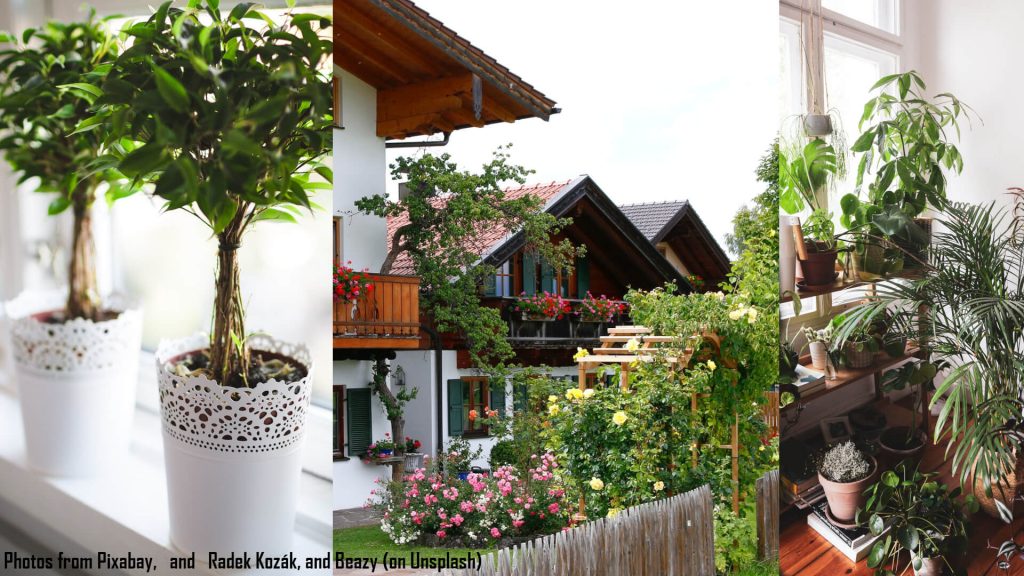When there are millions of topics on the internet to explore, you read this article because you have an amazing green thumb. First of all, let us congratulate you on that. We as humans rarely stay in one place in our lives, and we have to move from one place to another for various reasons. So, the situation may not permit us to grow our own food as we want. But, that is kind of an excuse as far as we are concerned, because we strongly believe that when there is a will, then there is a way. Yes, today’s report is all about apartment gardening.
If you are living in an urban environment, no wonder you need solutions for your cultivation requirements. Let’s discuss some of the main points that are associated with apartment gardening.
What are the plants that you can grow in an apartment garden?
Generally, you can grow anything you like as long as the plants can sit in a container. However, that doesn’t necessarily suggest you can grow a full-size maple tree in your apartment garden. Actually, the size of the plant is not the primary objective you have to consider. Instead, you have to think about what you want to grow for consumption.
Whatever the objective is, we have some common plants that people grow in an apartment garden.

Herbs
The best part of herbs is that it is not challenging to grow them in containers as they typically don’t become big and bushy compared to other plant sorts. In addition, growing herbs inside your home will always permit fresh stuff for your cooking needs. Basil, chives, parsley and mint are some of the popular herbs people grow in apartment gardens.
Peppers
This is another type that you can grow without much of a fuss. Sweet peppers and hot peppers are two go-to options for many, and they provide yearlong harvests as well. If you ask what performs better, we would say it is hot peppers because you faceless hassle than sweet ones.
Tomato
Oh yes, tomato is a great option you can consider growing inside. Tomato plants are a magnificent choice to grow in containers in particular, and you don’t need big containers as well. There are many variants in tomatoes, and most of them suit well for an apartment garden.
Other than the above-mentioned plants, you can go with Meyer Lemons, Strawberries, Lettuce, Spinach, and many small-sized plants.
What are the factors to consider in apartment gardening?
Apartment gardening might not be the easiest job in the world; having said that, it is not that hard if you provide the following factors to the plants. We urge you to read the following section of the article vigilantly if you want to be successful with apartment gardening.
Sunlight
Obviously, plants find it very difficult to thrive if they don’t receive an adequate amount of light, preferably sunlight. The norm is, a plant must get at least six to eight hours of sunlight light daily. This can be a daunting task when you grow indoors, and the place you live might not be the ideal place to get sunlight.
In that sense, the best possible way to mitigate this issue is to keep your plants near a window to facilitate direct sunlight as much as possible. If it sounds out of your reach, you have to think about artificial lightings for the plants.
Containers
Containers are what holding the plants; hence, they are a super vital aspect of apartment gardening. There are several types of containers available in the market for you to choose from; clay, plastic and wooden are some of the common sorts.
Whatever the choice is, you have to make sure the containers are as light as possible. In addition, the space of the containers must facilitate enough area for the plants. Also, see whether they have a proper drainage system in them to discard excess water.

Soil
Since you grow the plants in containers, the ordinary soil that you find in your outdoor garden might not suit the job. If you use such soil, it will impact proper drainage because the ordinary soil tends to get compacted in the containers. The soil has to be light as well as fluffy; it also must encourage easy drainage.
However, it is not a demanding job to find a suitable potting mix. They are affordable, and you can buy them easily from brick and motor shops or the internet without much problem.
Water
Water is another crucial factor. Regardless of the method of cultivation, water plays a pivotal role in the growth of plants. The importance gets even bigger since you are growing plants in containers. You will have to water the plants at least twice a day, depending on the plant you choose to grow.
Further, you must think of how you are going to water the plants as it will be a hard job when you have a considerable amount of plants in your apartment garden. Using water cans might not be the ideal option; instead, it will be much better to consider a hose.
Humidity
Since the plants grow at room temperature most of the time, you will have to provide humidity regularly. Most plants cannot tolerate high temperatures, and if you don’t pay proper attention to this factor, the plants won’t provide the results you expect from them.
To prevent this from happening, you can mist the plants a couple of times a day or placing a water tray near the plants also would do the same job for you.
Wind
This may not apply to most, but some people prefer their apartment garden on rooftops or balconies. If you also fall into the bracket, it is imperative to take the necessary steps to protect the plants from high winds.
In addition, don’t keep small plants in such places as the containers that hold plants might not be sturdy enough to bear strong winds, and it could spoil all your efforts within a matter of seconds.

Also Read: Some of the Most Beautiful, Best Flowers to Plant in the Garden.
Conclusion
So, guys, we think the above-furnished details are enough for you to start building your apartment garden. Apartment gardening is not an impossible task as long as you know the basics well. Now, you know the basics, and it’s time for the execution. We hope you all the very best!

![Factors to Consider in Apartment Gardening [A Must Read for Rookies] Factors to Consider in Apartment Gardening [A Must Read for Rookies]](https://tipbeing.com/wp-content/uploads/2021/06/Factors-to-Consider-in-Apartment-Gardening-A-Must-Read-for-Rookies-1024x574.jpg)
![Is it Possible to Grow an Indoor Bonsai Tree? [Explained in Detail]. Bonsai Trees Plants Ornamental Trees Gardening](https://tipbeing.com/wp-content/uploads/2021/05/Is-it-Possible-to-Grow-an-Indoor-Bonsai-Tree-Bonsai-Trees-Plants-Ornamental-Trees-Gardening-150x150.jpg)






